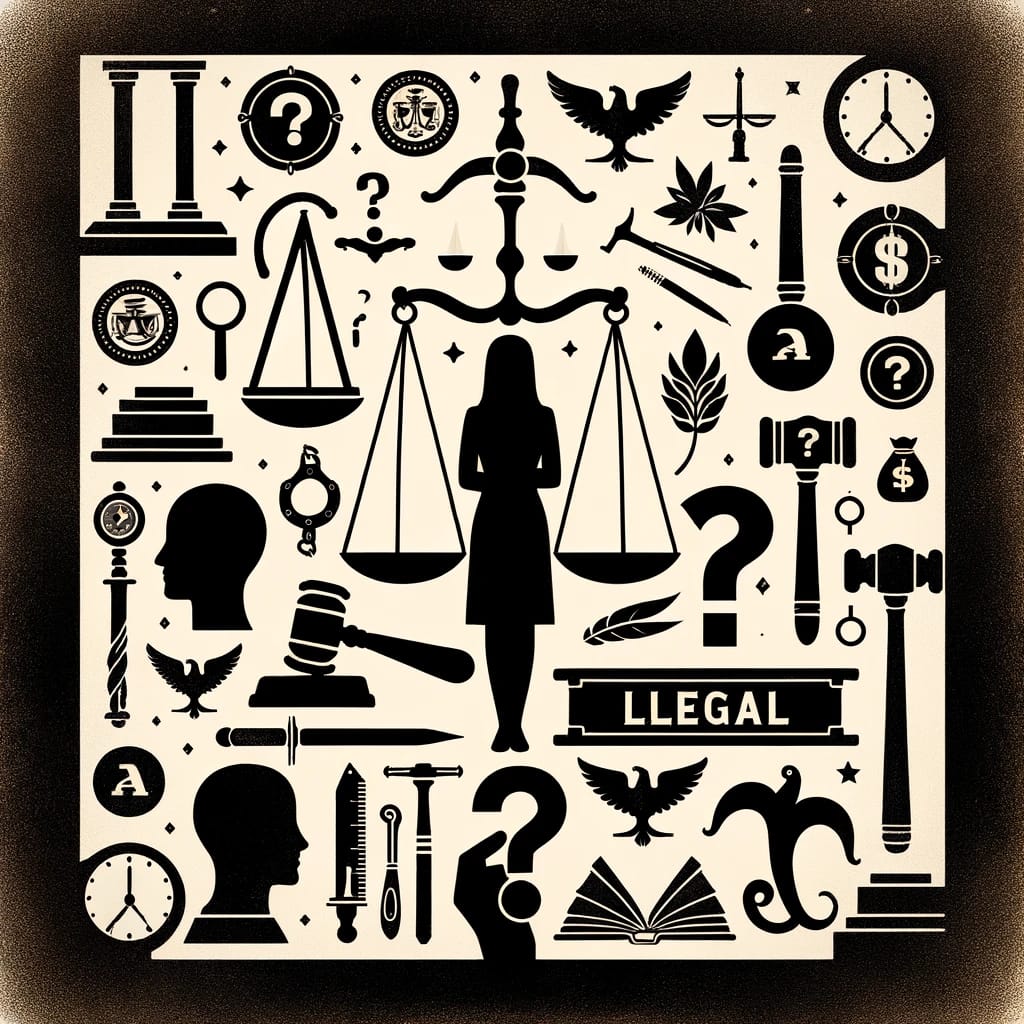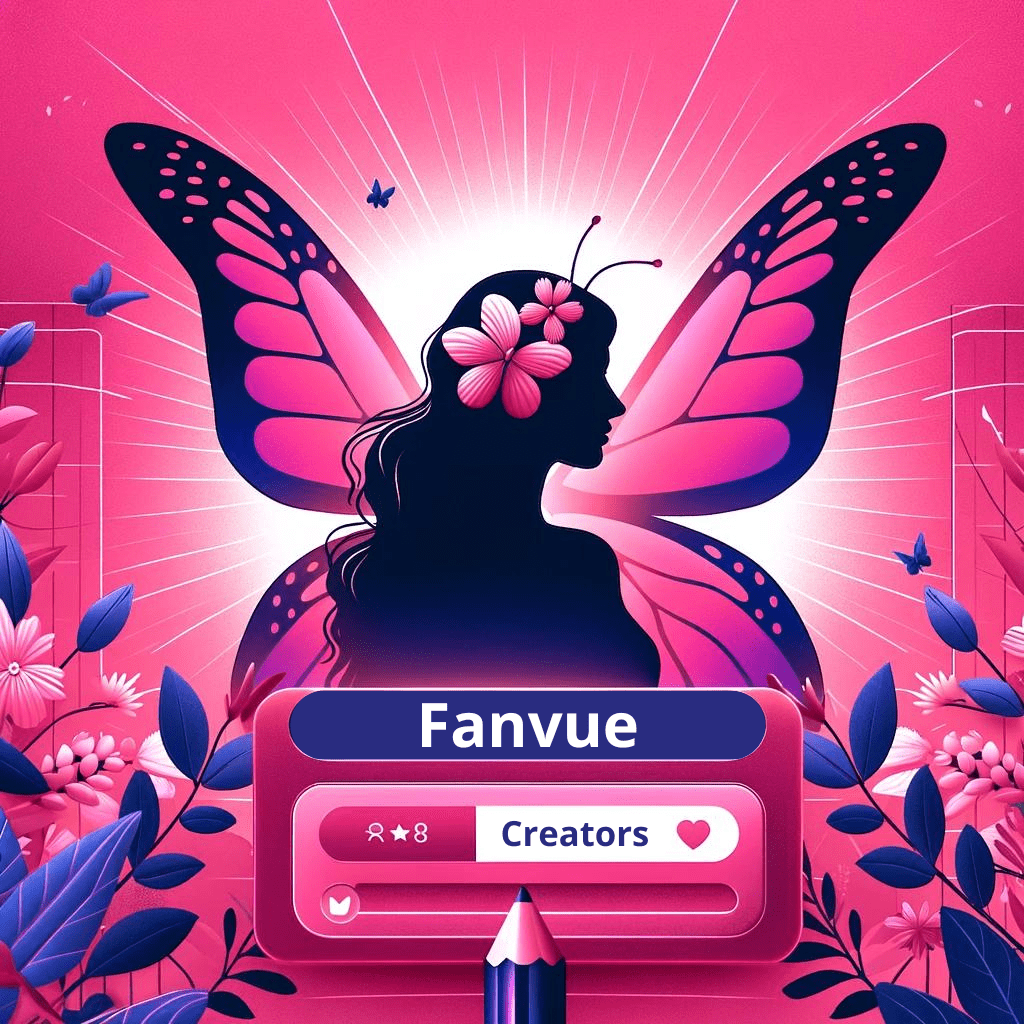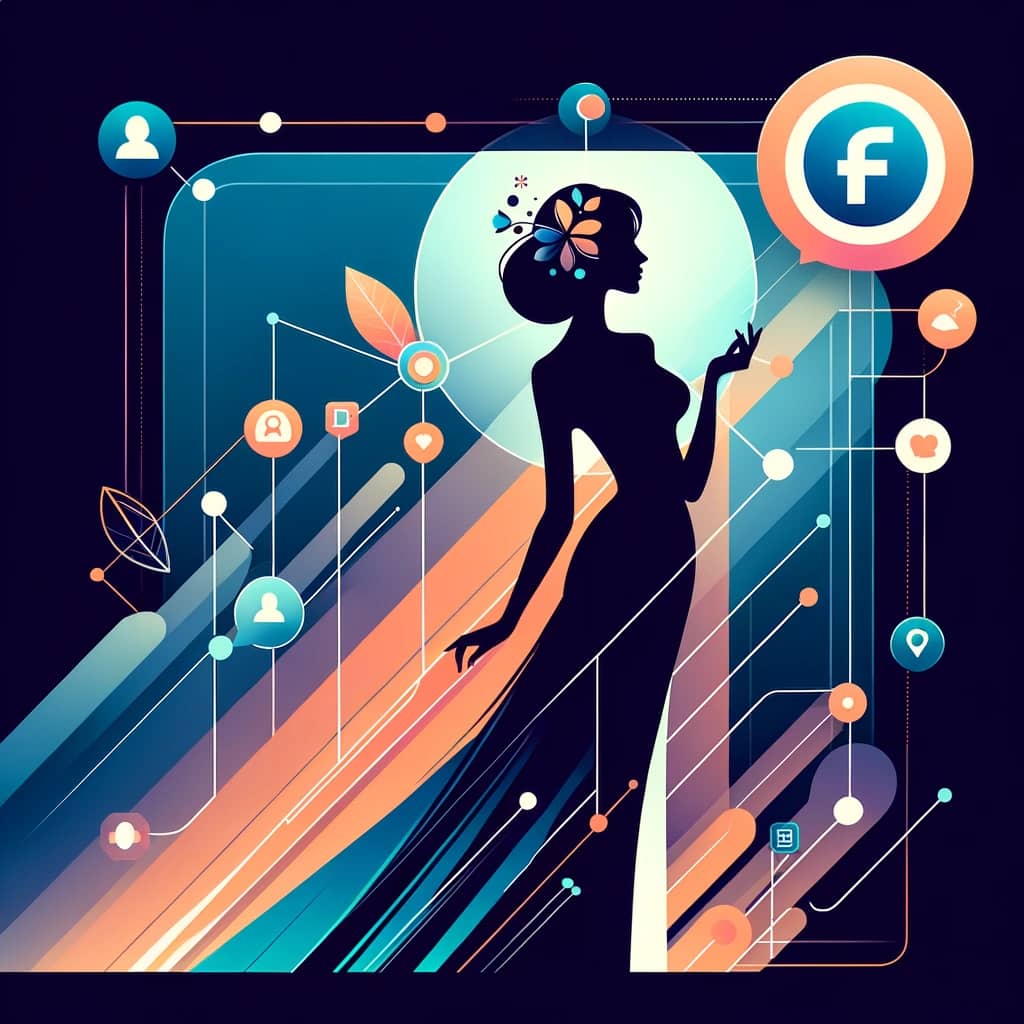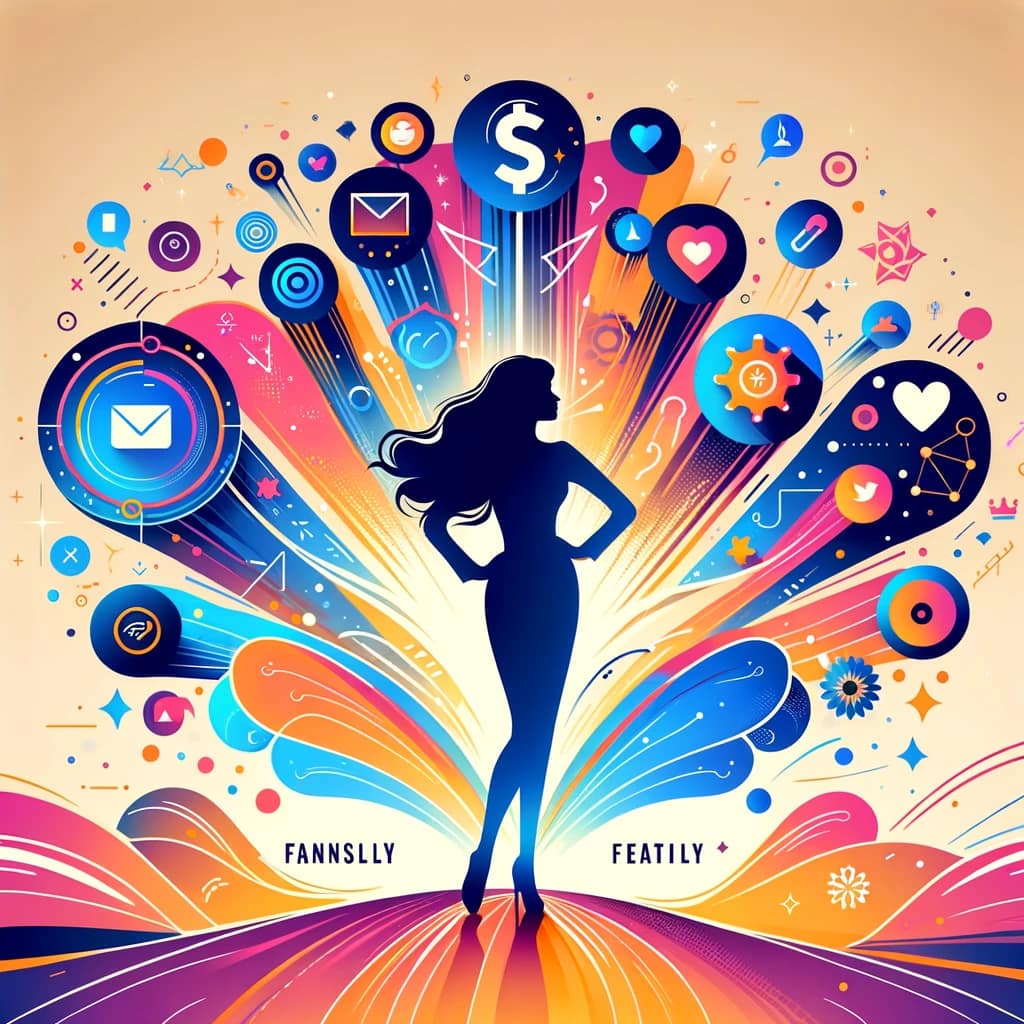Is OnlyFans Illegal? Understanding the legality of OnlyFans is essential for both content creators and consumers navigating this popular platform. With its rise in mainstream use, questions surrounding permitted content and potential legal ramifications have surged, prompting a closer examination of the rules governing the digital space. This insightful exploration demystifies the legal landscape of OnlyFans, detailing what is allowed and highlighting the legal risks involved. Engaging with this article will arm you with the knowledge to responsibly enjoy or contribute to the platform, ensuring a safe experience in the realm of user-generated content.
Understanding OnlyFans: Legitimacy, Content Policies, and Geographic Variations
Is OnlyFans Illegal? Navigating Legitimacy Across Borders
While pondering over “Is OnlyFans illegal?“, one should consider the platform’s broad legal acceptance. Operating chiefly within legal frames in many countries, OnlyFans enables content creators from various genres, including fitness, beauty, and adult entertainment, to monetize their offerings. Yet, there’s a complex tapestry of laws globally affecting its use. For example, explicit content faces restrictions in specific regions, where adherence to stringent local regulations is paramount for users. Conversely, in countries with liberal digital content laws, such as the USA and the UK, OnlyFans operates without significant impediments, fostering a vibrant community of creators and subscribers engaging lawfully on the platform.
Content Policies: Ensuring Safety and Compliance
The heart of OnlyFans’ operational legality lies in its rigorous content policies. These internal regulations are pivotal in maintaining OnlyFans as a legitimate platform, prohibiting material such as child exploitation, non-consensual content, and violence. Abidance by these policies is non-negotiable, ensuring that all content is legally producible and consumable, contingent on the user’s country of residence. The platform’s commitment to these standards shields it from becoming an accessory to illegal activities and fosters a safer environment for both creators and consumers of content, thereby debunking the “Is OnlyFans illegal?” myth within the confines of its terms of service.
Geographic Variations: Where is OnlyFans Permitted or Prohibited?
“Is OnlyFans illegal?” also depends on one’s location. In the majority of jurisdictions, OnlyFans is legally accessible, and the subscription-based model is in full compliance with local digital commerce regulations. Nonetheless, there exist conspicuous exceptions. Countries like Dubai, Turkey, and now Russia (since February 2023) have restrictions or outright bans, citing moral grounds or legal predicaments such as payment processing issues related to sanctions. India presents a nuanced case where the platform is allowed, but content creation involving explicit material by local creators is banned. Despite these geographic disparities, OnlyFans stresses compliance with each country’s legal benchmarks, illustrating their flexible operational approach to global internet governance.
Key Points on OnlyFans Legal Landscape
- Extensive legal operation in majority of countries.
- Explicit content subject to localized restrictions globally.
- Stringent content policies to ensure platform legitimacy.
Synthetic Overview: Legal Status of OnlyFans
| Country | Status |
|---|---|
| USA/UK | Permitted |
| Dubai/Turkey | Restricted/Banned |
| India | Permitted with content restrictions |
| Russia | Banned (as of February 2023) |
Navigating the Legal Maze: How Users and Creators Circumvent Restrictions
Is OnlyFans Illegal? The VPN Solution
Many wonder: Is OnlyFans illegal in countries where it’s banned? Legally, the platform may not operate openly, but tech-savvy users and creators often turn to Virtual Private Networks (VPNs). VPNs mask the user’s location, making it seem as if they are accessing the website from a region where OnlyFans is permitted. It’s a simple yet effective way to bypass geographical restrictions. However, it’s essential for users to understand the legal risks involved. Misrepresenting one’s location to access banned content can have consequences if discovered by authorities. Thus, while VPNs offer a loophole, they must be used with caution and awareness of potential legal fallout.
Stealth and Compliance: Creators from Banned Countries
Is OnlyFans illegal for creators in banned regions? Yes, and while some creators might choose to use VPNs, many prefer to stay unnoticed. They avoid advertising their actual location or suggesting they’re operating from a restricted area. This stealth is not just about avoiding detection by OnlyFans, but also about evading local law enforcement that might impose severe penalties. Creators take compliance seriously, often using pseudonyms and providing content that obfuscates any identifiable features related to their location or identity. They balance the fine line between reaching a global audience and staying within the boundaries of their nation’s laws.
Social Media Alternatives for Promotion
In regions asking, “Is OnlyFans illegal?”, creators often resort to alternative platforms like Instagram or TikTok for promotion. While these platforms don’t allow explicit content, they offer a way to build a following and drive traffic to OnlyFans content indirectly. Promoting a personal brand without violating social media guidelines requires creativity. For instance, creators might use suggestive, non-explicit content that alludes to the racier material available on OnlyFans. This method leverages the vast userbases of these platforms, connecting with potential subscribers without drawing the ire of censors.
Key Strategies for Circumventing Restrictions
- Using VPNs to access or distribute content anonymously
- Maintaining an ambiguous online presence to avoid legal scrutiny
- Leveraging mainstream social media for indirect promotion
Synopsis of Legal Evasion Tactics
| Tactic | Purpose | Risks |
|---|---|---|
| VPN Use | To access OnlyFans from banned locations | Legal repercussions if discovered |
| Concealing Real Location | To avoid detection by authorities | Potential penalties for breaking local laws |
| Promotion on Other Social Media | To indirectly advertise OnlyFans content | Being banned from the social media platform |
Future Challenges and Legal Considerations for Platform Users
Adaptation to Changing Laws
One of the principal concerns for OnlyFans users is the potential shift in the legal landscape. As societal norms and regulatory frameworks evolve, platforms like OnlyFans may have to adjust their policies to stay compliant. The question “Is OnlyFans illegal?” cannot be answered definitively as it may change depending on new legislation. For instance, laws regarding digital consent and privacy rights are increasingly under scrutiny, making it imperative for users to stay informed about their obligations and risks under changing laws. Additionally, users need to be aware of the international nature of the platform, as content that is lawful in one jurisdiction may be prohibited in another.
Key Legal Challenges to Anticipate
- New privacy regulations
- Revisions in consent laws
- International law compliance
- Changes in adult content legislation
Synopsis of Anticipated Legal Adaptations
| Legal Category | Potential Changes |
|---|---|
| Privacy Rights | Stricter controls on data sharing and user information |
| Consent Laws | Revised definitions and requirements for digital consent |
| International Compliance | Harmonization with global content laws and regulations |
| Adult Content Legislation | Updates to the legal status of adult content creation and distribution |
Technological Advancements and Legal Implications
Technological innovations such as deepfakes and virtual reality are creating new frontiers in content creation. However, they also introduce a plethora of legal concerns, particularly around the authenticity of consent and intellectual property rights. The issue of “Is OnlyFans illegal?” extends to the legality of the content produced using these technologies. There’s an urgent need for robust measures to protect against the misuse of an individual’s likeness and the unauthorized distribution of personal content that may violate someone’s rights or image.
Impact of AI on Content Authenticity
- Deepfake legislation and enforcement
- Intellectual property disputes
- Rights to one’s likeness and image
- Challenges in verifying content origin and consent
Summary of Technological Risks and Protections
| Technology | Legal Risks |
|---|---|
| Deepfake | Misuse of identity, defamation risks |
| Virtual Reality | Unauthorised use of physical likeness |
| AI Content Generation | Intellectual property infringement |
Regulatory Compliance for Adult Content
For content creators, staying within the bounds of adult content regulations remains a significant challenge, particularly when the question, “Is OnlyFans illegal?” comes into play. This involves navigating a labyrinth of regulations that vary dramatically by region. It is crucial for creators to understand the specific requirements of the jurisdictions they operate in, such as age verification protocols, restrictions on types of content, and reporting obligations for illegal activities. A deep understanding of these requirements is vital for creators to protect themselves legally and operate sustainably.
Essential Compliance Factors for Creators
- Local adult content laws
- Age verification systems
- Reporting mechanisms for abuse
- Adherence to platform rules and regulations
Tabulation of Compliance Requirements
| Compliance Area | Regulatory Aspects |
|---|---|
| Age Verification | Implementation of robust age-check systems |
| Content Restrictions | Abiding by types of content allowed |
| Illegal Activity Reporting | Obligatory reporting for detected illegal content |
| Platform Policy Adherence | Following the specific rules set by OnlyFans |
FAQ – Questions on OnlyFans Legality
Is creating content on OnlyFans considered a legal profession?
Yes, content creation on OnlyFans is a legal profession as long as it aligns with the platform’s terms of service and local laws. For example, many individuals legally utilize OnlyFans to offer fitness coaching, cooking classes, or personal training sessions.
What types of content are prohibited on OnlyFans?
OnlyFans strictly prohibits any content involving minors, violence, non-consensual acts, and illegal substances. If a creator distributes content depicting extreme bondage, for instance, they risk violating OnlyFans’ terms and potential legal repercussions.
Can sharing OnlyFans content with non-subscribers lead to legal issues?
Sharing OnlyFans content without permission is a copyright infringement that can lead to legal action. A case in point is when a subscriber redistributes a creator’s work online; both the subscriber and the hosting site could face legal consequences.
Are there risks of liability for unintentional legal violations on OnlyFans?
Yes, creators can face liability for unintentional legal violations, such as inadvertently including copyrighted music in their content. It is crucial for creators to perform due diligence, like obtaining proper licensing, to mitigate such risks.
How does OnlyFans comply with age verification laws?
OnlyFans complies with age verification laws by requiring creators and subscribers to provide valid government-issued ID during sign-up, ensuring that all users are of legal age. This is similar to age verification processes used by online gaming platforms.
Understanding OnlyFans legality is crucial for creators and consumers alike. Navigating the balance between permissible use and legal risks requires careful consideration. As digital content sharing grows, staying informed about the platform’s terms of service can protect you from unforeseen liabilities. Our expansive guide offers insight into the complexities of content creation and consumption within the legal frameworks. For a deeper dive into what you can and cannot do on OnlyFans, continue exploring our comprehensive exploration of the topic to ensure your experience is both enjoyable and compliant.














